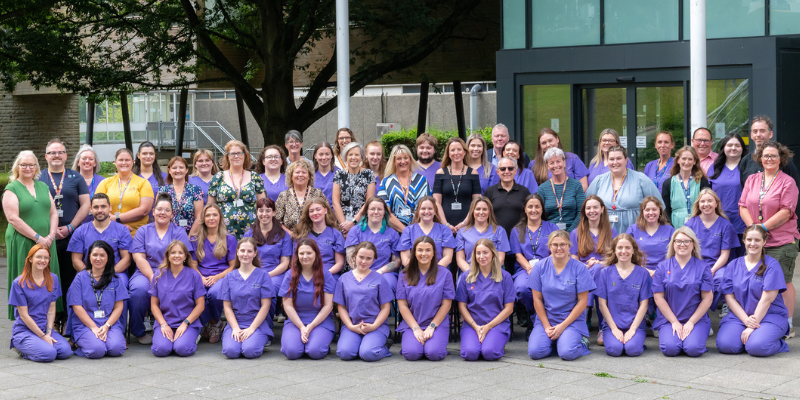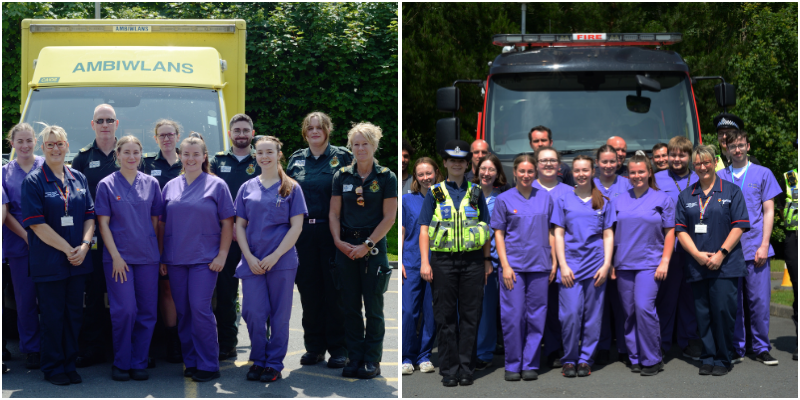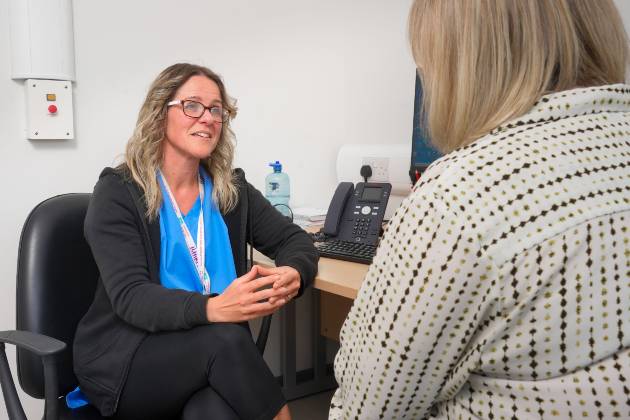News
A milestone for health care in mid Wales as first nurses qualify from Aberystwyth University
History was made in Aberystwyth this summer, as the very first cohort of nurses educated at Aberystwyth University have now qualified to work in the health service.

Connect with us:
Almost 40 students, who began their studies in September 2022 when the university’s new Health care Education Centre first opened its doors, have completed their degrees in Adult and Mental Health Nursing. Their achievement marks a major step forward for health care provision in mid Wales, with many of the graduates expected to take up roles in local hospitals and community settings.
Building a new tradition of nursing education
The £1.7m Healthcare Education Centre, located opposite Ysbyty Bronglais, has been at the heart of this journey. Equipped with high-quality clinical practice rooms and supported by a £500k Welsh Government grant, the centre has provided students with the facilities to hone their skills before stepping into real-world placements.
Over the past three years, students have split their time between classroom learning and hands-on clinical practice, with placements at Bronglais Hospital and across the Hywel Dda University Health Board. This balance has ensured that graduates are not only academically prepared but also confident in delivering compassionate, evidence-based care.
A collaborative effort
The success of Aberystwyth’s nursing programme has been built on strong partnerships. Local health boards including Hywel Dda, Betsi Cadwaladr and Powys, as well as Health Education and Improvement Wales (HEIW), have all played a vital role in supporting the course.
Emergency services have also contributed, most memorably during a large-scale training exercise in 2025 that saw police, paramedics, firefighters and hospital staff join forces with students to simulate a major incident.
This spirit of collaboration has been central to preparing the next generation of nurses for the challenges of modern health care.

Supporting Welsh language and local recruitment
One of the distinctive features of Aberystwyth’s nursing degrees is the opportunity for students to study up to half of their course through the medium of Welsh. This not only strengthens the role of the Welsh language in health care but also helps ensure that patients can receive care in their language of choice.
The programme has also been designed with local recruitment and retention in mind. By educating nurses in mid Wales, the university and its partners are helping to address long-standing challenges in staffing rural health services.
Looking ahead
While this first cohort celebrates its success, the programme continues to grow. From the initial intake of around 50 students, nursing education at Aberystwyth has expanded rapidly, with 239 students now enrolled across Adult and Mental Health Nursing. The university has also introduced a part-time qualification for health care support worker (HCSWs)s, creating new pathways into nursing.
The graduation of Aberystwyth’s first nurses is more than just a milestone for the university – it’s a moment of pride for the whole community. It represents the beginning of a new tradition of nurse education in mid Wales, one that will continue to strengthen the NHS locally and nationally for years to come.
Head of Healthcare Education at Aberystwyth University, Amanda Jones said: “It is so heartening to see our students succeed and prepare to assist patients in the real world. It has been an honour to be part of history - teaching the first ever cohort of nursing students here in Aberystwyth. I wish them all every success for the future".
RCN Wales Associate Director of Nursing (Professional Practice) and Honorary Professor at Aberystwyth University, Professor Sandy Harding, said: “To see the very first nurses qualify in Aberystwyth is both inspiring and deeply significant for the future of health care in mid Wales. The team at Aberystwyth University has delivered something truly exceptional. These nurses are true pioneers whose impact will be felt across local health care and whose success marks the beginning of a new chapter in strengthening nursing education and practice across Wales”.











